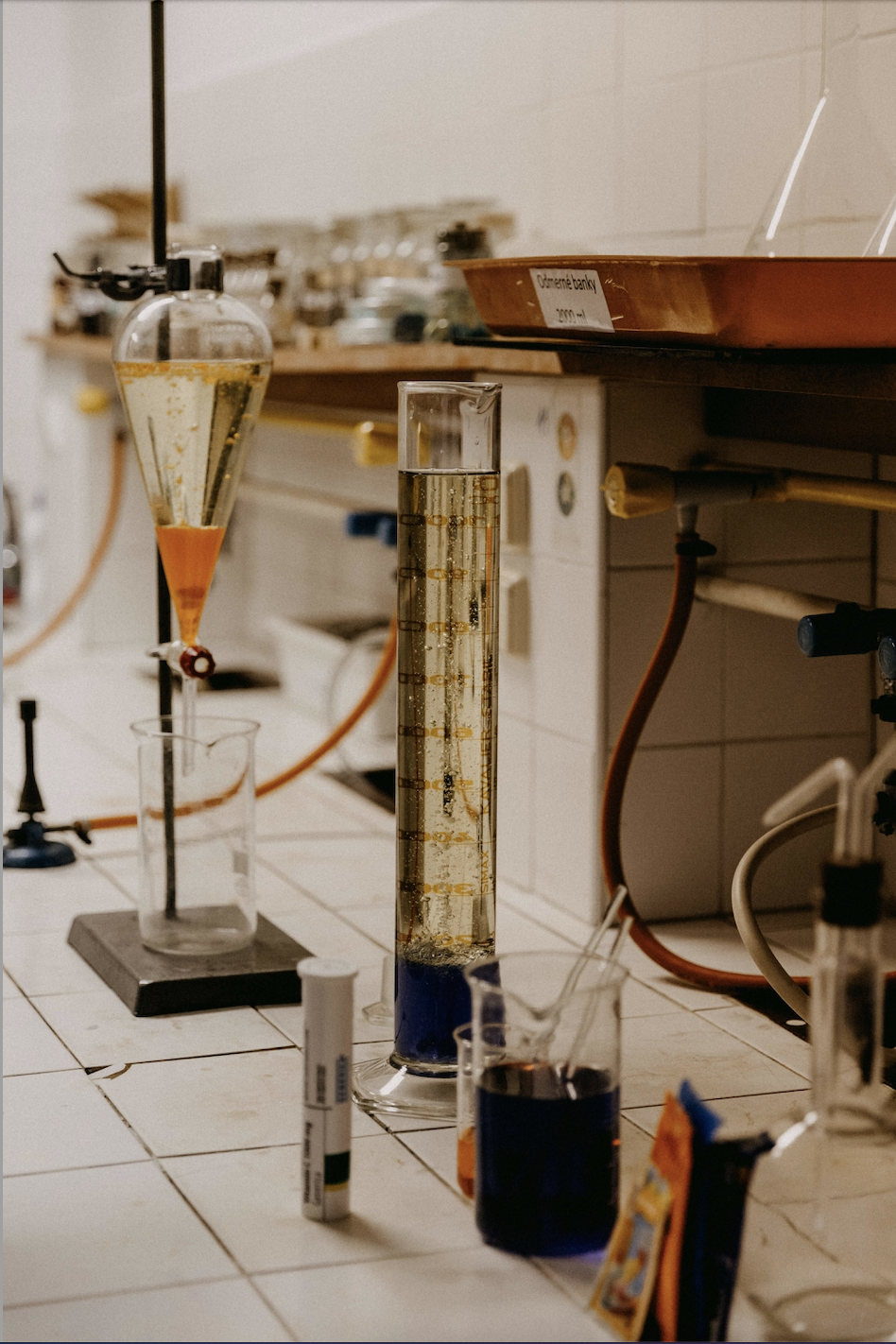‘Complete this problem sheet before the next tutorial.’ This is one of the very first things that my professor told me in Oxford. We, first year chemists, had no idea about what was about to hit us as we casually flipped through the problem sheet. It was surprisingly short. It wasn’t until we walked out of the meeting that we realised we had no clue on how to complete even a single one of the problems. We went to the library and started learning collaboratively about the stereochemical consequences of nucleophilic substitutions right away, setting sail on the academic journey that we were not expecting.

That evening, we had multiple eureka moments. Lecture notes online and recommended readings were helpful, but discussing ideas with tutorial partners was even more important. We also realised very early on that we must cooperate with each other if we were to survive this daunting and intense course. I distinctly remember the feeling of solving a particularly difficult problem with my tutorial partner together after staring at it for about two hours. We walked around the library with excitement, savouring the feeling of success of finding solutions. In Oxford, knowledge was very accessible. I attended some philosophy and neuroscience lectures for fun. I was surrounded by smart people who loved sharing ideas all the time. Even social events like ‘port and policy’ provided invaluable insights. Oxford was the most comfortable place for passionate learners, where questions were embraced and encouraged. Every day we were expected to push our own boundaries of what is possible, and our professors are on the same journey as us, living and breathing the same philosophy.

Laboratory work was a big part of my undergraduate studies. As a chemist, I burnt, poured and analysed numerous samples of chemicals in the laboratory. Operating a schlenk line that could condense oxygen and dealing with pyrophoric compounds were very common in the lab. In order to minimise danger in experiments, we had to do a lot of research on Chemicals and their relevant properties before laboratory work.
Sometimes, even with a lot of reading and training before the laboratory practicals, I would still be confused and overwhelmed by the sheer amount of work. Luckily, we often worked in groups and discussing concepts and allocating lab responsibilities among lab partners helped a lot. Getting desired results and the high fives with lab partners after labs were some of the best feelings in the world. Figuring out patterns and finding practical evidence to support my answers in the post lab problem sheets were hard, but it helped me develop my data analysis and articulation skills, which were proven immensely useful even after I graduated.
Oxford is not the biggest city physically, but it always feels huge to me simply because of the vast amount of intellectual stimulation it provides. The Gothic and Baroque styled architecture were not the only thing pleasing about the City. Oxford is not only built with cobblestone, but also more than 900 years of crystalline wisdom, academic research and scientific advancements. Doing the same problem sheets as famous scientists like Peter Atkins in the library next to Malala every day made me feel very privileged. Did they also struggle like we do? I couldn’t help but wonder.
One thing that I learned in Oxford is that no one has all the answers. My professor (Jose M. Goicoechea) is one of the smartest scientists I have ever met in person, but he often admits that even he doesn’t understand Chemistry sometimes. He would also sometimes struggle to answer difficult questions and make careless mistakes in tutorials. It made me realise that even the greatest minds in the world like Richard Feynman or Erwin Schrödinger are humans too. Our college principal Alan Rusbridger was the chief editor of Guardian, but he’s at the same time a friendly gentleman who loved walking around the garden with his pugs. We even played piano and attended jazz events together. Great academics also breathe the same air, listen to the same music and get the same groceries as us. It helped me come into terms with my own identity and forgive myself easier when I made mistakes.

Studying in Oxford wasn’t all about academic exploration though. Walking through the freshers’ fair each year never ceased to amaze me. The sheer amount of societies and clubs offered all the opportunities for students to explore their hobbies, ambitions and interests. The Oxford Foundry for entrepreneurs, Out of the Blue for acapella lovers, or even octopush society for niche lovers of underwater hockey… The possibilities are endless. I joined the magic club and basically developed all of my skills as a magician there. It was truly amazing to find people who were fascinated by the same art form as me and to discuss ideas with every week. I also got plenty of exposure through the society and landed a few gigs in weddings and balls here and there every month.
There was a lot of freedom in Oxford and there were always unlimited opportunities for me to explore. I could attend a lecture by Stephen Hawking in the Oxford Union or go to a piano concert by Martha Agerich; I could go on a cycling trip through the port meadow or shoot a hyperlapse at the Radcliffe Camera; I could go to port and policy to gain some insight about international relations or perform in a jazz band in college. Every day I was presented with choices and possibilities and I tried to make the most out of them.
The world had changed significantly over my undergraduate years. Brexit, Donald Trump’s presidency, Hong Kong’s political landscape, COVID pandemic were a few notable events. However, no matter what happens, I can always discuss it with someone at Oxford. Through debate and discussions, we gained a much clearer view of the world, the society and what’s really important to us. I am grateful for all the friends that I have made in Oxford, and I look up to all of them. My Oxford years also helped me figure out my affinity towards the education system, as I firmly believe that education is of the utmost importance when it comes to shaping the future. I also learnt to stand up for things that I believe in (e.g. gender, sexual orientation, racial equality), and to never give up on fighting against systematic oppression.
Studying at Oxford was an intellectually challenging, stimulating and rewarding experience. It strengthened my value system, honed my interpersonal skills and helped me develop my international vision. I will forever be thankful for the opportunities and possibilities presented to me.
Quantum Prep is an education consultancy that focuses on placing their students at the best colleges or universities. We boast of diverse results. In addition to the traditional rap sheet of prestigious university acceptances, our consultants like to highlight the different paths they have sent students on. All of our students are different; we are proud of our one-on-one tailored approach towards university counselling. Contact us for a complimentary 30-minute initial meeting, where you can get tailored individualized advice on how to put your best foot forward. Read our reviews to see what our clients think of us.
By Anson Chung, Admissions Consultant
Published 14-12-2021

